A college degree is a luxury to many who do not have the means, the resources, and the time to pursue it. It’s no secret either that graduates are having trouble finding jobs, which is why people are starting to look at trade schools. The stigma, however, is that they are less reputable or valuable, but that’s simply not true.

In the State of Michigan, the changes in the skills development landscape are evident. Trade school attendance is growing in the state, as it is in most parts of the country. Unlike some decades ago, today is a great time for residents in Michigan to take advantage of the growing vocational economy. Manufacturing, automobile, electronics, aerospace, and military defense are Michigan’s top industries that demand a highly skilled workforce. The agribusiness and cybersecurity sectors are also central to the state’s economy.
In Michigan, Ann Arbor and Jackson are the two cities that gained recognition for the healthcare and heating, ventilation, and air conditioning education and training they offer. Michigan also provides higher-than-average wages, particularly in the cities of Battle Creek, Kalamazoo, and Monroe.
Why is Michigan Suitable for Vocational/Career Schools?
Michigan has one of the broadest expense gaps between its two-year schools and four-year universities. Learners in community colleges and career and vocational schools in Michigan paid an average of $3,900 in 2018-2019, while universities charged $13,400. That’s a difference of $10,000, with college tuition rates that are approximately 350% more.
Michigan works with young students to raise an understanding of the value of Career Technical Education at the college level. One in every four high school students in Michigan are enrolled in the state’s CTE programs, and 40% of college students seek some form of Michigan CTE Certification.
Trade School Financial Aid in Michigan

The average yearly tuition in trade and vocational schools in Michigan is $10,000 less than the average cost of a university degree, but some trade programs take longer or charge extra fees. Trade school students in the state can apply for grants and scholarships to help pay for their education.
At the start of their academic journey, students must know about how the Free Application for Federal Student Aid works. The FAFSA collects information on students’ income and other factors to determine their eligibility for financial assistance. Other scholarships and grants are exclusively available to Michigan learners, such as:
- Michigan Competitive Scholarship – Michigan students with SAT 1,200, may apply for this statewide award of up to $1,000.
- Tuition Incentive Program – Recent high school graduates who meet the Michigan Medicaid eligibility requirements can have their tuition and most required fees covered during their certificate or associate degree programs.
- Children of Veterans Tuition Grant – This program is open to Michigan undergraduates between 16 and 26 years of age whose parent/s were either disabled or killed as a result of their military service and duty. It offers up to $2,800 annually for qualifying full-time students.
Initiatives for Vocational School Students in Michigan
Numerous programs exist at the institutional and state levels to help grow the accessibility to career education. Whether they offer scholarship programs for undergraduates in Michigan or college grants that assist schools in developing their education and training programs, these initiatives work to maintain Michigan trade school programs available and affordable:
Support for Vocational Students in Michigan

The Michigan College Access Network offers a variety of funding opportunities for career and technical schools in the state, including grants that are designed to help with the development of programs to expand college readiness and aid students stay in school until graduation.
The Community College Skilled Trades Equipment Grant is offered by the Michigan Economic Development Corporation to assist Michigan vocational schools in affording the equipment they need to grant cutting-edge technical education and training.
Michigan Policies that Benefit Trade and Vocational Students
The Michigan government passed a bill in 2016 that enables vocational and community colleges in Michigan to expand their in-district tuition areas to reduce college costs for students in nearby countries.
The Michigan Community College NETwork (MCCNET) works as a one-stop-shop for students exploring for hard data and other information about potential institutions for their trade school training and education.
School-specific Program Initiatives in Michigan
High-achieving students at Kellogg Community College might be eligible for one of the KCC Foundation Gold Key Scholarships, which grant $2,500 annually for two years with an additional $1,000 available for continued education after they earn their program.
Glen Oaks Community College offers numerous scholarship programs through its institutional foundation, including the Dr. David H. & Patricia A. Devier Scholarship open to full-time, first-generation students.

When trying to find the best on-campus or online skills education and training school, always get the most comprehensive information you need to decide on the best institution to enroll. In Michigan where you have a wealth of trade school options, it can be quite daunting to take your pick.
At OnlineSchoolsCenter.com, we help you come up with the best decision for your future career! Our researchers and writers rounded up the best trade schools in Michigan, emphasizing their best academic and training features.
On this list, we categorized the online and on-campus trade schools in Michigan based on the many skills for various career pathways. Each of these trade schools:
- Feature a comprehensive curriculum to develop particular skills needed for high-demand jobs in different industries,
- Hold high retention rates,
- Offer experiential education and training to develop the skills and competences,
- Feature instructions with impressive faculty credentials,
- Emphasize affordability and offer financial aid options,
- Earned accreditation from academic and skills development organizations.
For more information on our ranking details, please read our Methodology page.
Quicklinks to Michigans’s Best!
- The Best Overall Campus and Online Trade Schools in Michigan
- The Best Pharmacy Technology Trade Schools in Michigan
- The Best Court Reporting Trade Schools in Michigan
- The Best Criminal Justice Trade Schools in Michigan
- The Best Culinary Trade Schools in Michigan
- The Best HVACR Tech Trade Schools in Michigan
- The Best Auto Repair Trade Schools in Michigan
- The Best Dental Hygiene Trade Schools in Michigan
- The Best Medical Billing and Coding Trade Schools in Michigan
- The Best Cosmetology Trade Schools in Michigan
- The Best Information Technology Trade Schools in Michigan
- The Best Photography Trade Schools in Michigan

The Best Overall Campus and Online Trade Schools in Michigan
Michigan is synonymous with the automotive sectors. For several years, Michigan has been known as the center of auto manufacturing. In different ways, its history is driving the state’s future as businesses emphasize technology and advanced manufacturing. With continuous company growth in the automotive fields, trade and vocational students can easily find careers in the automotive fields after obtaining related vocational degrees and certificates.

Auto manufacturing is still one of the biggest industries in Michigan, but the state is also a top producer of agricultural commodities, an expanding hub for information, and an essential leader in healthcare. The state is home to the busiest border crossing in North America and one of the biggest air hubs in Asia, delivering jobs in the business administration, transportation, and food science sectors.
While almost half of Michigan’s graduates have obtained a bachelor’s degree, many also opt for associate and certificate degree programs. Learners can choose from a variety of trade and vocational institutions throughout the state. The most popular sector for students attending a community college or other vocational schools is healthcare, a rapidly-growing industry in the state.
Michigan’s biggest employer is the University of Michigan at Ann Arbor, with numerous companies in the healthcare sector rounding out the list of top employers. Seven of the top 10 biggest employers in Michigan are healthcare systems or hospitals, leading to career opportunities for graduates of medical assistants, nursing, and other healthcare-related programs.
Alpena Community College
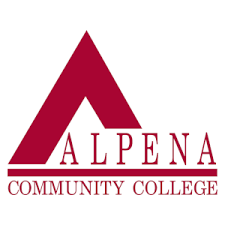
Alpena Community College offers students a supportive academic journey into higher education, with small class sizes, two local campuses, and frequent interaction with classmates and professors. The vocational programs offered are career-focused, developing students in their efforts to join the workforce. Some programs also permit students to transfer to four-year degree programs, if desired. Areas of study range in a variety of industries, with technical programs such as criminal justice, business, economics, marine technology, and healthcare programs. Students enjoy several support services on campus, including a library, student services center, wireless connectivity in different campus locations, and volunteer centers.

Baker College
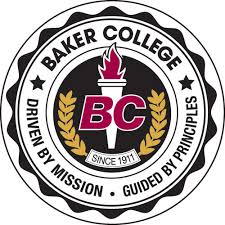
Baker College is an accredited private, non-profit American college academic institution in Michigan that was established in 1911. It has eight campuses throughout the Lower Peninsula of Michigan. Currently, the school offers several degree programs in different areas of study, including culinary arts, information technology, dental hygiene, education, engineering, and human resources. As an independent college, the school is focused on developing the best experience possible for its students, not collecting profits for investors. Students who have busy schedules can take advantage of Baker Online, the virtual campus of the Baker College System. Classes delivered through Baker Online are not self-paced; thus, classes start and end on specific dates, and assignments have deadlines to keep students on track toward obtaining their degrees. They interact with qualified online professors and engage with peers in their online classrooms. Moreover, they enjoy the school’s extensive library resources and classes 24/7, enabling students to do coursework day or night.
The school is home to the 1st Michigan Technical Education Center in the state, focusing on technical skill and career development for professional adults. There are over 230 scholarship programs available to Bay College students, both through Bay College Foundation and private institutions.

Delta College
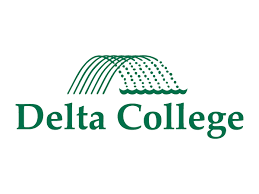
Delta College is one of the academic institutions in Michigan that offers tuition payment plans for learners who might have an easier way of paying for their college expenses when they are not obliged to settle their payments in one lump sum. Students at the medium-sized academic institution near Saginaw Bay were granted $26 million in financial aid in 2017-2018, including almost $600,000 in scholarship programs.
The school delivers degree programs as well as certificate programs through on-campus and virtual learning. Online students can access the school’s eLearning/Desire2Learn platform, Delta College’s online learning management system that allows students to complete research work, assignments, and collaborate with peers and professors through distance learning. Several areas of study are offered in Delta College, including education, business, engineering, and liberal arts.
The trade degree programs provide students the opportunity to obtain associate degrees in an innovative and collaborative learning setting. Moreover, Delta College is one of the schools that is part of the National League for Innovation in the Community College.

Gogebic Community College

Gogebic Community College is an academic institution in the far western tip of the Upper Peninsula that could be a suitable choice for learners who prefer a close-knit learning setting. The school features a student population of around 1,000 students and a student-faculty ratio of 15:1, indicating that administrators and instructors are likely to have time and resources available to help students one-on-one whenever they need it.
GCC’s Commercial Motor Vehicle Program is one of the unique programs that can train students to earn a Commercial Driver License (CDL) before they hold a temporary instructional permit. It is also one of the few career academic institutions in Michigan to deliver education in Ski Area Management, through an associate degree program that consists of 12 credits of work experience as a capstone completion.

Grand Rapids Community College
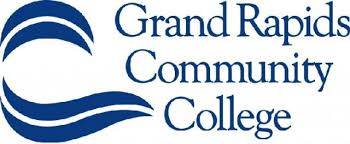
Grand Rapids Community College is situated across West Michigan and is considered a community college that offers a variety of certification and associate degree programs as well as occupational training programs and other learning opportunities. At GRCC, traditional classrooms have been modified into state-of-the-art learning facilities. These facilities support the coverage of academic opportunities available in the school, such as online learning, honors courses, experiential learning, training courses, workshops, and seminars.
The average class size at GRCC is 22.9 students, and 92% of the faculty obtain master’s or doctorate programs. They have a wide range of student support services, including bilingual support, academic and career counseling, and occupational and disability assistance.

Kalamazoo Valley Community College

Kalamazoo Valley Community College is one of the more affordable trade/vocational academic institutions in Michigan, reporting an average net price of over $4,100 for the academic year 2017-2018. Students going back to school after taking some time off can find similar-minded individuals with the school – approximately 8,000 learners enroll in for-credit classes in the school each semester, and 21% percent of the student population are ages 25-39 years old.
KVCC is home to personnel, facilities, and services aimed to support community, business, and professional development needs. The Strategic Business and Community Development department of KVCC offers development opportunities in the city designed to enhancing the regional footprint through facility rentals, education, community classes, and training. They provide corporate training programs with the school’s mission to offer individuals with a custom-tailored experience through cutting-edge education and state-of-the-art facilities.

Kirtland Community College
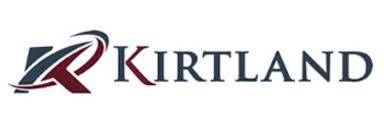
Kirtland Community College is a small educational institution in the Northern Lower Peninsula and is considered one of the reputable online trade schools in Michigan by enrollment percentage. Almost 60% of the students enrolled in 2017-2018 completed at least some of their courses via distance learning. Numerous degree programs delivered by Kirtland Community College are offered in a hybrid learning format, integrating on-campus classroom training and education with online classes.
KCC’s trade school programs cover a wide range of interests, including welding and fabricating to business and entrepreneurship. Online programs include associate degree programs in CNC Machinist, Fabricating, Electrical Technology, and Art and Graphic Design as well as a certificate program in entrepreneurship for aspirant small business owners. Learners benefit from the small class sizes, and frequent interaction with professors and classes include hands-on training that converts to essential skills in the workforce.
Students and graduates enjoy the school’s career resources to find job opportunities after graduation. They include portfolio development assistance, job search support, resume workshop, and skills and interview guidance.

Lansing Community College
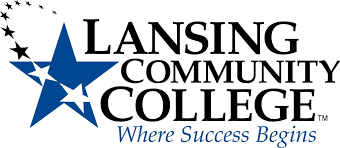
Lansing Community College is considered one of the best community colleges in the U.S. Also, it’s one of the most prominent schools in Michigan by enrollment and offers five specialized regional learning institutions on top of its two full-service locations. This mid-Michigan academic institution has one of the biggest catalogs among all vocational/trade schools and community colleges in the nation. In 2020, the school was granted the National Center of Academic Excellence award by the Department of Homeland Security and the National Security Agency for its outstanding Cybersecurity program.

Macomb Community College
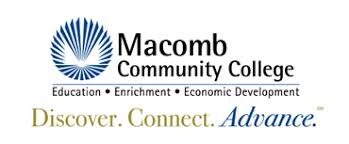
Macomb Community College was established in 1954 and is considered one of the more prominent schools in Michigan. In 2018, the student enrollment population was more than 42,000, indicating more than half of these students pursue degrees, certification programs, and for-credit programs. Almost 9,500 learners obtained some of their credits through distance learning as well, allowing them to have many distance learning peers if they choose to take the virtual learning academic journey.
Students in Macomb can obtain an Associate of Applied Science in Diagnostic Medical Sonography, one of the rapidly-growing and lucrative healthcare sectors for professionals with an associate degree or less. Several Information Technology programs are available, including an Associate of Applied Science or Certificate in Game Programming.

Mott Community College
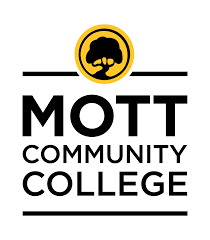
Mott Community College offers numerous Associate of Applied Science in career-specific industries related to business, healthcare, human services, industrial, or technology for students pursuing a vocational or trade degree. Graduates will be equipped to join the workforce upon program completion; some students opt to study and work at the same time. Prospective learners can learn about potential career opportunities related to each program in Mott’s official website, with career possibilities and career projections on each program page. Many programs prepare students to sit for licensure exams upon completion of the program.

Oakland Community College
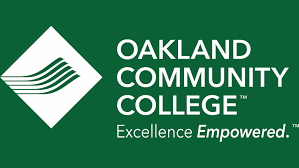
Oakland Community College is a public community college founded in 1964 and is situated in Oakland County, Michigan. It has the lowest tuition rate in metropolitan Detroit, with an OCC degree that runs less than two years at a state university. OCC delivers degree and certificate programs to prepare learners for their first career or the next venture of their professional life. Furthermore, the school has more than 100 programs in popular fields such as advanced manufacturing, healthcare, and information technology.

Washtenaw Community College

Washtenaw Community College provides students the opportunity to study in a trade/vocational Associate of Applied Science program on top of its Associate of Arts and Associate of Science programs. These degree programs offer a more career-focused and targeted curriculum to quickly prepare students for career opportunities in the industry they want to establish. Also, they provide the benefit of permitting students to participate in a variety of applied educational opportunities. Many WCC courses can be completed in an online format, offering students the opportunity to achieve more credits where they might not earn in a traditional on-campus classroom environment.
With flexibility as one of the main priorities of WCC, classes are delivered seven days a week, in evening and online for individuals with limited room in their respective schedules. The average net cost of an education at WCC is manageable, with individuals paying an average of less than $4,300 annually per grant and scholarship aid that is applied.
Several degrees and certificates in Advanced Manufacturing can be obtained in WCC, including a 12-credit certificate in Computer Numerical Control Machine Tool Programming. More than 30 programs in different areas of study, such as cybersecurity and business administration, are delivered entirely online.

Wayne County Community College District
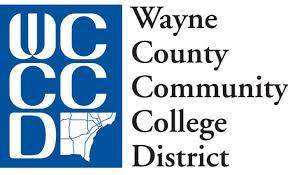
The Wayne County Community College District consists of five college locations and a university facility throughout the state. With headquarters in metropolitan, rural, and industrial areas, learners have access to trades, organizations, and businesses where they earn experience related to their field of study. WCCCD focuses on career and occupational programs, but university transfer opportunities are available as well. Learners use the Learning Resource Centers at each campus or through online accessibility. Students who are working and need additional flexibility and convenience can opt to attend “Weekend College,” offering classes on Friday evenings as well as Saturday mornings and afternoons.
The service area of WCCCD is the biggest among Detroit community colleges, consisting of 2.3 million people in the greater Detroit area. Established in 1967 with no facilities of its own, the school now has five full-service trade campuses throughout the state and links with young students through public school collaborations that help high school students transfer to college.
Aspirant first responders can select from three separate programs in Fire Protection Technology that adhere to the Fire and Emergency Serves Higher Education model curriculum created by the National Fire Academy. The school also collaborates with Michigan State University to deliver a unique program in Fruit and Vegetable Crop Management.

West Shore Community College
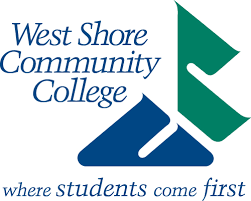
Established in 1967, West Shore Community College sits on a 360-acre property near the Lake Michigan shoreline. Many recreational facilities are available on-campus, including an ice arena that provides hockey, open skating, and figure skating opportunities for state residents. It boasted an average affordable cost of less than $3,800, the lowest rate among all other community colleges.
At least 50 degree and certificate programs are available at this Western Michigan community college, including certificates in office information systems, corrections, and medical assisting. Trade/vocational associate degree programs include disciplines in mechanical systems, agricultural operations, and precision machine technology.
Are you considering a vocational career? Let us help! Check this out: 30 High Paying Trade School Degrees and Jobs 2020

The Best Pharmacy Technology Trade Schools in Michigan – Campus and Online
Michigan is considered the 10th most populous and the 11th largest state in the United States. Alongside the increasing medical needs of an aging population, advancements in the pharmaceutical industries make excellent job prospects for pharmacy technicians in Michigan.
The state requires its pharmacy technicians to be regulated and certified before they can start working in their fields. They must complete a pharmacy technician program from a board-approved academic institution, earn a PTCB certification, and seek to license from the Michigan Board of Pharmacy. Students must select a program that is accredited by the American Society of Health-System Pharmacists. These certified schools are guaranteed to conform to the recommended requirements set by the national certifying board of PTCB.
The average annual salary for a pharmacy tech in the state is $31,790, indicating 9% below the average national salary. The requirements for pharmacy technicians are projected to expand significantly in the next few years. The jobs for pharmacy techs are estimated to multiply in Michigan, according to the Bureau of Labor Statistics. They have reported an 8.55% career growth from 2016-2026, with 1,200 yearly job openings.
Henry Ford College
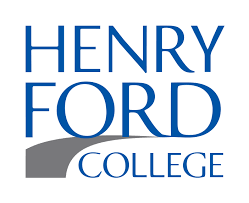
Henry Ford College is a two-year academic institution which was founded in 1938. Headquartered in Dearborn, Michigan, it guarantees that academic credits obtained at its school will be fully transferable to four-year colleges or universities. With class sizes being small, professors and students are provided personal attention. The school offers several class options – from day, night, online, and weekend classes. HFCC has a Certificate in Pharmacy Technology that receives accreditation from the American Society of Health-System Pharmacists. The program motivates students to develop their skills by practicing on pharmacy-related supplies and equipment. It has maintained its accreditation status and has affiliations with 12 retail and community pharmacies; and 16 hospital pharmacies. Students can take the opportunity to network with pharmacy technicians and pharmacists during the Michigan Pharmacy Association Annual Conference.
- Official Program Name: Pharmacy Technician
- Program Level: Certificate
- Learning Format: On-Campus and Online
- Financial Aid: Scholarships, Grants, Loans, Student Employment, Tuition Benefits, and Discounts

Wayne County Community College District
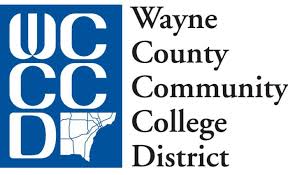
Wayne County Community College District in Detroit, Michigan, was established in 1967. Over the past years, the school has improved itself by upgrading student services, improving student facilities, innovative technology, and therefore has been known as one of the best community colleges in the state. The range of student services includes academic and career counseling, on-campus daycare for students’ children, remedial classes, and career placement services. The school provides a certificate and associate degree in Pharmacy Technology. Both degree programs utilize the industry-leading pharmacy software PioneerRx, developing learning using simulations and enabling students to understand daily operations in the pharmacy in an improved way. Graduates will be well-equipped with aspects in pharmacology, distribution of drugs, pharmaceutical calculations, and dispensing of medications.
- Official Program Name: Pharmacy Technology
- Program Level: Certificate, Associate
- Learning Format: On-Campus
- Financial Aid: Scholarships, Grants, Loans, Student Employment, Tuition Benefits, and Discounts

Washtenaw Community College

Washtenaw Community College is a community college established in Ann Arbor Township, Michigan, in 1965. The school has training collaborations with local and national industries and businesses and has transfer agreements with the University of Michigan-Dearborn, Ferris State University, University of Michigan, and Eastern Michigan University, which effortlessly enables transfer credits. The Certificate in Pharmacy Technology is a full-time program with the benefits of having some of its classes available online or hybrid format. Sample courses include Introduction to Pharmacy and Healthcare Systems, Medical Terminology, Pharmaceutical Calculations, Prescription Processing, and Compounding, and Pharmacology for Pharmacy Technicians.
- Official Program Name: Pharmacy Technology
- Program Level: Certificate
- Learning Format: On-Campus
- Financial Aid: Scholarships, Grants, Loans, Student Employment, Tuition Benefits, and Discounts

Mid Michigan Community College
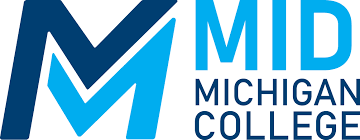
A public community college established in 1965, Mid Michigan Community College, has two locations in Harrison and Mt. Peasant. The small class sizes and professional instructors ensure 1:1 attention, offering an excellent foundation for a career or advancement of study. Financial aid opportunities and student support services are readily available at MidMich, providing an affordable and attainable educational experience. The school offers a certificate program that can be earned in one year and just 24 credits. This ASHP-accredited program has courses available in a blended learning format, while laboratory sessions are conducted on-campus. The tuition fees of this program are one of the most affordable pharmacy technician programs in the state.
- Official Program Name: Pharmacy Technician (PhT)
- Program Level: Certificate
- Learning Format: On-Campus
- Financial Aid: Scholarships, Grants, Loans, Student Employment, Tuition Benefits, and Discounts

Ross Medical Education Center

Ross Medical Education Center provides a Certificate in Pharmacy Technician program that can be completed in 36 weeks. With a graduate rate of 70%, students will be taught how to handle pharmacy operations, understanding medical terminology, and dosages, as well as understanding the standards of pharmaceutical, microbiology, and pharmacy law and ethics. Students complete courses such as General Pharmacy, Medical Terminology for the Pharmacy Technician, Basic Principles and Concepts of Mathematics, Hospital and Health Systems, and Pharmaceutical Agents for Human Physiological Systems. The pharmacy program has collaborations with PioneerRx, developing Ross’s pharmacy technician curriculum with a hands-on learning approach that simulates the workflow and functions of today’s innovative pharmacy facilities.
- Official Program Name: Pharmacy Technician
- Program Level: Certificate
- Learning Format: On-Campus
- Financial Aid: Scholarships, Grants, Loans, Student Employment, Tuition Benefits, and Discounts
For additional options, see: OSC’s Choices For Online Trade Pharmacy Technology Certificate Programs

The Best Court Reporting Trade School in Michigan – Campus Only

One of the most crucial duties in Michigan’s judicial system is court reporting. They make word-for-word transcriptions of murder trials, create a transcript for a deposition hearing, or create documentation regarding a corporate scandal. Court reporters in the state are as significant as attorneys, judges, juries, and witnesses. In 2017, Michigan employed approximately 590 court reporters and compensated them for the annual wage of $51,010. According to BLS, the national job growth is projected 3% in the court reporting field from 2016-2026. With that being said, Michigan may experience career growth at more or less the same rate from 2016-2026 too.
Meeting post-high school educational requirements will take students roughly two years. After earning an associate or certificate program, students must seek certification in months or even years. Despite the indicated mean annual wage, how much court reporters would end up earning depends on their employers, areas of specialization, level of training, location, and level of certification achieved. Graduates must be aware of the fact that if they work in a legal setting, then they would be paid a salary and per-page transcription fee. On the other hand, if they work as freelancers, then the salary would depend upon their contract; however, they would be paid a per-page fee for preparing transcripts.
Macomb Community College
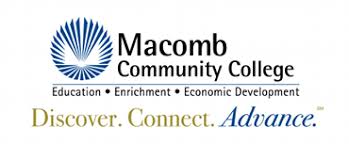
Macomb Community College offers a Court Reporting Certificate Program that introduces students to computer-aided transcription, broadcast captioning, machine shorthand, and litigation support of court reporting. Learners will learn about conflict-free transcribing and writing and ways on how to take medical, technical, and legal dictation. Students will also enhance their speed on stenotype until it has reached higher than 200 words per minute with high accuracy. Macomb’s Court Reporting program is the only program in Michigan recognized and certified by the National Court Reporters Association. Sample courses include Judicial Technology, Real-Time Court Reporting Theory, Medical Terminology for Court Reporters, and Skill Building and Development.
- Official Program Name: Court Reporting
- Program Level: Certificate
- Learning Format: On-Campus
- Financial Aid: Scholarships, Grants, Loans, Student Employment, Tuition Benefits, and Discount
Do you need an online option? Look at these suggestions: Best Online Schools for Court Reporting

The Best Criminal Justice Trade Schools in Michigan – Campus and Online

There are several opportunities to obtain a criminal justice degree in Michigan. Getting a college education before starting their career can lead to more opportunities in the criminal justice sector. As a concrete example, urban policing is an attractive career specialization in Michigan.
Ann Arbor requires that applicants must have at least an associate degree and entails more skills development experience that is relevant to criminal justice. Detroit’s police department also seeks more people to join their workforce. Despite some employers not requiring a degree, earning one can make candidates more competent in their pursuit of lucrative careers.
Despite the several issues in Michigan’s economy, one of the many expanding fields in the state is its criminal justice sector that is likely to need more professionals to help solve the state’s crime rates that are higher than the national average.
As one of the most populous states in the country, Michigan provides several federal law enforcement positions. The Federal Bureau of Prisons upholds two facilities in Michigan, a low-security correctional institution in Milan and an urban center in Detroit, both requiring skilled criminal justice professionals to staff corrections needs. Detroit is also a place to a major international airline hub for Delta and KLM, generating demand for homeland security roles with the TSA. Graduates can also find other positions in the homeland security industry due to the state’s long border with Canada and a shoreline bordering three Great Lakes.
As the Michigan State Police develops demand for their next class, they are equipped to pay new troopers $44,000 annually in base compensation, on top of generous benefits. The agency encourages that candidates must have some form of a college education. The average salary per year for protective service occupations, including patrol and police officers in the state, is $42,870.

Oakland Community College
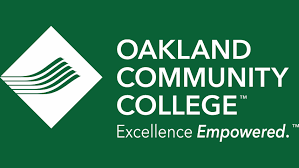
Oakland Community College has an Associate in Applied Science in Criminal Justice- Generalist program that provides experiences related to social values, criminology, legal procedures, and criminal law. Students obtain a solid academic background in police administration and systems, as well as extensive experience in additional topics relating to the criminal justice sectors. It is designed to offer students with the courses essential to meet 2+2 and 3+1 degree requirements for academic institutions delivering bachelor’s degree programs in Criminal Justice. A total of 62 credit hours is needed to complete the program. Sample courses include Juvenile Procedures, Community Relations in Criminal Justice, Police Patrol Administration and Procedures, Substance Abuse Investigation, and Police Administration.
- Official Program Name: Criminal Justice
- Program Level: Certificate, Associate
- Learning Format: On-Campus
- Financial Aid: Scholarships, Grants, Loans, Student Employment, Tuition Benefits, and Discounts

Wayne County Community College District
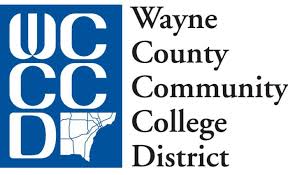
Wayne County Community College District has an Associate of Applied Science in Criminal Justice Corrections program for careers in Corrections. Students must have 61-62 credit hours for completion of the program. The criminal justice courses include Correctional Institutions and Facilities, Illegal Drug Traffic and the African-American Community; Legal Issues in Corrections; Introduction to Juvenile Justice; and Social Science for Correctional Personnel.
- Official Program Name: Criminal Justice: Corrections
- Program Level: Associate
- Learning Format: On-Campus
- Financial Aid: Scholarships, Grants, Loans, Student Employment, Tuition Benefits, and Discounts

Washtenaw Community College

Washtenaw Community College has an Associate in Applied Science in Criminal Justice that prepares students for certification to work in law enforcement career opportunities in Michigan. Learners must complete the academic program before joining the Police Academy component of the program. This program requires the completion of 60 credits, with sample courses in Introduction to Forensic Anthropology, Criminal Justice Ethics, Criminal Justice Constitutional Law; Law Enforcement Training Part I and II; and Police/Community Relations. The school recommends that learners complete one or two semesters of Spanish on top of their program requirements.
- Official Program Name: Criminal Justice-Law Enforcement
- Program Level: Certificate
- Learning Format: On-Campus
- Financial Aid: Scholarships, Grants, Loans, Student Employment, Tuition Benefits, and Discounts

Mid Michigan Community College
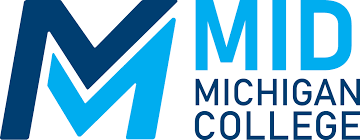
Mid Michigan Community College has four criminal justice programs to cater to different career goals, including local detention, state corrections, and law enforcement. Students pursuing a four-year bachelor’s degree program in criminal justice can choose the transfer pathway, enabling them to complete their first two years in Mid Michigan. Students must have 64 credits for completion of the program. Sample courses include Legal Issues in Corrections; Introduction to Information Systems; Client Relations in Corrections; Contemporary Social Problems; and Juvenile Delinquency.
- Official Program Name: Criminal Justice-State Corrections
- Program Level: Associate in Applied Science
- Learning Format: On-Campus
- Financial Aid: Scholarships, Grants, Loans, Student Employment, Tuition Benefits, and Discounts

Alpena Community College
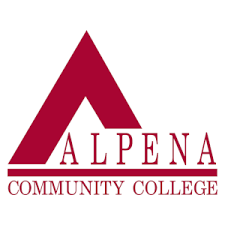
Alpena Community College offers an Associate of Arts in Criminal Justice- Transfer and is considered a recommended program of study for transfer students interested in pursuing a bachelor’s degree in criminal justice at a four-year college or university. It is a program choice for learners whose career aspirations are to become a federal agent or police officer and who also aspire to enter supervision or criminal justice personnel. Students must have 61 credit hours for completion of the program. Sample courses include Ethics in Criminal Justice, Community Policing, Foundations in Personal Finance, Police Administration, and Introduction to Computer Forensics and Cybercrime.
- Official Program Name: Criminal Justice
- Program Level: Certificate, Associate
- Learning Format: On-Campus
- Financial Aid: Scholarships, Grants, Loans, Student Employment, Tuition Benefits, and Discounts
For additional information, see our Criminal Justice Career, Salary and Degree Guide
Recommended Schools

The Best Culinary Trade Schools in Michigan – Campus Only

Michigan is proud of being home for the longest freshwater coastline in the country that sets the bar for exquisite seafood. Passionate food enthusiasts may consider the state as one path to a well-defined culinary arts education or as a starting point for a rewarding culinary career. The state’s food culture is a varied mix of eclectic cuisine, demonstrating the Great Lakes commerce influence. There are concentrated population places like Detroit and Grand Rapids to showcase the notable innovations among chefs, whose trendsetting masterpieces are welcomed by cultured urbanites.
There are rich history and tradition of education and training in the culinary arts in Michigan. Students’ cooking school education can be located in different types of schools, so it is crucial to consider institutions such as community colleges, technical/vocational colleges, four-year universities, and stand-alone culinary schools as possible sources for the different degrees that contribute to the hospitality industry.
Certificate programs take a year or less to earn and prepare students for general employment as a line cook or other entry-level kitchen positions. Diplomas are granted by schools that are centered on a specific area like Culinary Arts. The curriculum does not include the basic skills requirements found in an associate degree program. On the other hand, associate degree students must show proficiency in Communication, English, and Mathematics, together with their culinary accomplishments and internship programs.
Oakland Community College
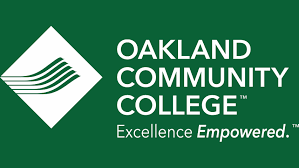
Oakland Community College offers an Associate in Applied Science-Culinary Arts degree program that has earned accreditation from the American Culinary Federation. The program helps students carve out a rewarding career as a culinary professional, beverage manager, or executive chef. During the first year, the program teaches foundational skills, technical procedures, and expertise in baking, guest services, cookery, and food safety. In their second year, the students learn about contemporary and classical cuisines, skill refinement, and creating pastries. Throughout the program, students learn about financial applications, industry standards, management principles, and human resources in food and beverage operations. Sample courses include Modern Buffet Techniques, Cookery Techniques, Event and Catering Management, Beginning Cake Decoration, and Food Service Cost Management.
- Official Program Name: Culinary Arts (CUL.AAS)
- Program Level: Associate
- Learning Format: On-Campus
- Financial Aid: Scholarships, Grants, Loans, Student Employment, Tuition Benefits, and Discounts

Washtenaw Community College

Washtenaw Community College’s Certificate in Culinary Skills and Operations prepares students for a role as a food production specialist in restaurants, hotels, and other institutional environments where they will prepare culinary dishes from different menu categories and perform professional skills such as food safety, storage, and receiving.
Students will explore foundational aspects of food-service management and gain a wide range of industry skills. Students complete required courses such as Principles of Cost Control, Fundamentals of Baking, Culinary Purchasing, Classical Kitchen, and Sanitation and Hygiene. Students must have 31 credits for the completion of the program.
- Official Program Name: Culinary Skills and Operations
- Program Level: Certificate
- Learning Format: On-Campus
- Financial Aid: Scholarships, Grants, Loans, Student Employment, Tuition Benefits, and Discounts

Baker College
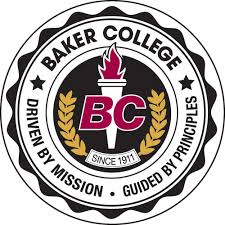
Baker College’s Culinary Arts Associate Degree program has been accredited with an exemplary status by the American Culinary Federation Education Foundation Accrediting Commission. The program is designed to provide students a well-rounded understanding of all aspects of professional food service management and operations. Students develop their cooking skills through a combination of traditional classroom training, hands-on learning, and internship experience.
Students also learn about other components of restaurant operations such as menu planning, management, and table service. Sample courses include Sustainability in the Food Service Industry; Global Cuisine and Buffet Production; Purchasing and Product Identification; Food and Beverage Management; and Menu Planning and Analysis. Students must have 60 credits to graduate from the program.
- Official Program Name: Culinary Arts
- Program Level: Associate
- Learning Format: On-Campus
- Financial Aid: Scholarships, Grants, Loans, Student Employment, Tuition Benefits, and Discounts

Northwestern Michigan College
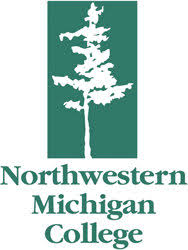
Northwestern Michigan College offers a Culinary Arts program that prepares students for entry-level culinary and kitchen management roles. NMC’s Great Lakes Culinary Institute consists of four culinary laboratories, including Introductory and Food Skills, Beverage Management Outlet, Lobdell’s, A 90-Seat Training Café, and an Advanced Cooking Kitchen. Graduates will have an exceptional combination of work experience, knowledge, skills, and expertise. A total of 66-67 credits are required for graduation in the program. Students take core culinary courses such as Menu Planning & Purchasing, Nutrition for Culinary Arts, Professional Cookery, Safety and Sanitation, and World Cuisine.
- Official Program Name: Culinary Arts
- Program Level: Certificate, Associate
- Learning Format: On-Campus
- Financial Aid: Scholarships, Grants, Loans, Student Employment, Tuition Benefits, and Discounts

Macomb Community College
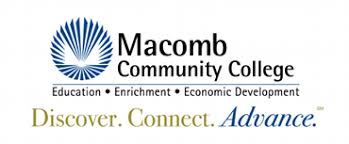
Macomb Community College has a Culinary Arts program that will show students how to excel as part of a culinary team, equipped with skills and techniques that make for an efficient kitchen and a happy customer. Students will obtain advancing levels of kitchen expertise as they work their way through a range of menus, including vegetarian and international. They also learn concepts about safe food handling, old-world bread baking techniques, food servicing, how to utilize a menu as a management tool, and food presentation through artistic/decorative skills. The program has garnered accreditation from the American Culinary Federation Education Foundation Accrediting Commission.
- Official Program Name: Culinary Arts
- Program Level: Certificate, Associate
- Learning Format: On-Campus
- Financial Aid: Scholarships, Grants, Loans, Student Employment, Tuition Benefits, and Discounts
Check out these additional programs offered in other states: Top 20 On-Campus Schools for Culinary Programs

The Best HVACR Tech Trade Schools in Michigan – Campus Only

Thanks to Michigan’s location, the state enjoys distinct seasons and establishments that need both cooling and heating throughout the year. With the demand for HVAC systems being reasonably stable, reputable engineers and techs to install, maintain, retrofit, and plan the methods are also desirable.
The state requires students to earn a mechanical contractor’s license to work as professional performing installations, diagnostics, and repairs of HVACR systems. The Michigan Department of Licensing and Regulatory Affairs-Mechanical Division and Bureau of Construction Codes regulate the application, license distribution, and examination procedures. Three years of work experience is required, and students must pass an examination for each chosen classification.
The laws in Michigan also sate that HVAC technicians need to be employed under a licensed contractor, but may not need to be licensed or certified. Licenses for mechanical contractors expire every three years. Nevertheless, no continuing training and education are currently required to renew Michigan Mechanical Contractor Licenses.
The average wage for HVAC Technicians is $70,875 annually in Michigan, indicating 17% above the national average salary. The best location to receive a high salary as an HVAC Technician is Grand Rapid, with an average rate of $79,319 per year. Next is Lansing with $73,938, while the lowest pay in Detroit with $62,213.
Northwestern Technological Institute

Northwestern Technological Institute’s HVAC school course in refrigeration covers foundational principles, diagnostics, maintenance, repair, and operations of domestic and light commercial walk-in coolers, water fountains, refrigerators, ice machines, juice machines, and freezers. Students gain experience and training from professional HVAC specialists who teach from experience. Sample topics include Latent and Sensible Heat; Section 608 Refrigerant Certification; Defrost Mechanisms; Methods of Heat Transfer; Law of Thermodynamics; and Compression Cycle. This 5-week HVAC program offers hands-on training and is an extensive class that will assist students in preparing for a career in the HVAC field.
- Official Program Name: HVAC
- Program Level: Certificate
- Learning Format: On-Campus
- Financial Aid: Scholarships, Grants, Loans, Student Employment, Tuition Benefits, and Discounts

Grand Rapids Community College
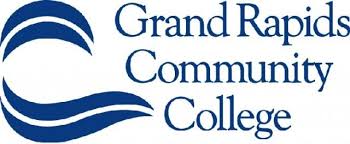
Grand Rapids Community College offers an HVACR program to help students learn the theory and become efficient in the skills essential to assume jobs as heating, ventilation, and air conditioning/refrigeration service and installation professionals. Learners complete at least two laboratory courses in different specialties every semester. Students must have 60 credits for program completion. They take core courses, including HVAC Blueprint Reading and Design, Advanced Air Conditioning, Refrigeration, and Heating; Basic Electricity and Electronics; Metallic and Non-Metallic Joining.
- Official Program Name: Heating, Ventilation, and Air Conditioning/Refrigeration Technology, A.A.A.S
- Program Level: Associate
- Learning Format: On-Campus
- Financial Aid: Scholarships, Grants, Loans, Student Employment, Tuition Benefits, and Discounts

Kellogg Community College
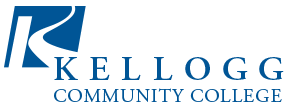
Kellogg Community College has an HVACR program that prepares students to diagnose, install, repair and maintain systems related to heating, ventilation, air conditioning, and refrigeration. Students must complete 60 credits to obtain an Associate of Applied Science in Heating, Ventilation, Air Conditioning, and Refrigeration. These credits are under three major categories, namely core curriculum, general education courses, and technical elective courses. Sample courses include HVAC Preventative Maintenance, HVAC Automation Controls, HVAC Water Treatment, HVAC Commissioning and Conservation, Refrigeration Systems and Components, and Heating Systems and Troubleshooting.
- Official Program Name: Industrial Heating, Ventilation, Air Conditioning, and Refrigeration, AAS
- Program Level: Certificate, Associate
- Learning Format: On-Campus
- Financial Aid: Scholarships, Grants, Loans, Student Employment, Tuition Benefits, and Discounts

Kirtland Community College
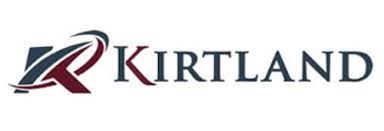
Kirtland Community College offers an HVAC/R program that teaches students how to troubleshoot, maintain, diagnose, and repair HVAC/R equipment and the electrical technology that comes with it. The HVAC/R program will prepare students to fill a career that is available now in a sector that is undergoing transformation because of environmental, technological, and other regulatory procedures. Students complete required courses including Introduction to Construction Drawing; Basic Rigging; Introduction to HVAC; Detailing with AutoCAD; Basic Copper & Plastic Piping Practices; and Basic Carbon Steel Piping Practices. Students must have 60 credits for program completion.
- Official Program Name: HVAC/R
- Program Level: Certificate, Associate
- Learning Format: On-Campus
- Financial Aid: Scholarships, Grants, Loans, Student Employment, Tuition Benefits, and Discounts
To learn HVAC through an online program, check this out: Online Trade Schools for HVAC-R Tech Programs

The Best Auto Repair Trade Schools in Michigan – Campus Only

With the biggest city in the state known as the “Motor City,” it is not surprising that career opportunities in auto mechanics would be prevalent in Michigan. Michigan has a long history as the country’s automotive birthplace, and it is home to all three major American automotive manufacture HQs, namely Chrysler, Ford Motor Company, and General Motors, which are popularly known as the “Big Three.” Whether students live in Detroit or Grand Rapids or anywhere in Michigan, an auto mechanic or auto repair career is a probability in Michigan.
According to the Detroit Chamber of Commerce, the state’s post-secondary institutions offer over 650 automotive-centered programs. While many auto mechanics earn on-the-job training, it is becoming increasingly crucial for individuals in a career in auto mechanics to obtain formal education and training from an automotive school in Michigan. Upon completing the auto mechanic training program, students can choose whether or not they pursue certification from the National Institute for Automotive Service Excellence (ASE). The ASE governs certification for technicians. Some of the credentials may qualify for Michigan state certifications, but not all ASE certifications are immediately transferable or recognized.
Workers in the automotive service facilities in Michigan must be appropriately certified for the types of diagnostic and repair work they perform. The state governs mechanic certification exams that enable service technicians to work on the kinds of roles in the state.
Oakland Community College
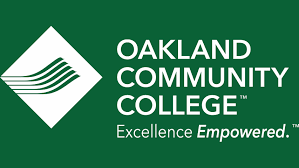
Oakland Community College’s Associate of Applied Science in Automobile Servicing is designed to prepare learners for entry-level servicing operations in the automotive industry. The program composes of ten specialized classes created in compliance with the mandatory Auto Mechanic Certification exams needed for state licensure. Graduates of the program equip students to sit for the State of Michigan certification examinations for licensing in eight areas of concentrations. Sample courses include Automotive Transmission Servicing, Automotive Advanced Electrical and Electronics, Automotive Fundamentals, Manual Transmission and Axle Service, and Automotive Air Conditioning and Heating Service. A total of 63 credits are required for program completion.
- Official Program Name: Automobile Servicing (AUS.AAS)
- Program Level: Associate
- Learning Format: On-Campus
- Financial Aid: Scholarships, Grants, Loans, Student Employment, Tuition Benefits, and Discounts

Wayne County Community College District
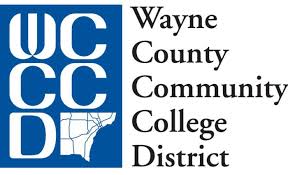
Wayne County Community College District’s Associate of Applied Science in Automotive Service Technology is designed to develop eligible technicians to repair, service, installation and diagnose modern automobiles. The automotive program delivers opportunities for students to enhance their skills and expertise for entry-level roles such as service managers, product test technicians, self-employment, automotive technician, and parts managers. It prepares students for State of Michigan certifications for any of eight automotive or Master certifications, and Automotive Service Excellence. Moreover, the program has earned accreditation from the National Institute for Automotive Service Excellence. Students take core automotive courses in Electrical/Electronic Systems; Engine Performance; Automotive Fundamentals; Suspension and Steering; and Manual Drive Train and Axles. The associate program requires 64 credits, while the certificate program requires 30 credits for program completion.
- Official Program Name: Automotive Service Technology
- Program Level: Certificate, Associate
- Learning Format: On-Campus
- Financial Aid: Scholarships, Grants, Loans, Student Employment, Tuition Benefits, and Discounts

Washtenaw Community College

Washtenaw Community College has an Associate in Applied Science in Automotive Service Technology that prepares learners for employment opportunities as a certified automotive technician or an automotive-related technical role. Students will repair and diagnose malfunctions in engine drivability issues, automobile engines, electrical and electronic systems, and suspensions and steering systems. Students can sit for the National Institute for Automotive Service Excellence Certification Examinations and the State of Michigan Mechanic Certification exams. They need to complete 60 credits of coursework to graduate from the program. Sample courses include Automotive Maintenance, Suspension, and Steering, Automotive Transmissions, Brakes, and Electrical and Electronic Systems.
- Official Program Name: Automotive Service Technology (APASRV)
- Program Level: Associate
- Learning Format: On-Campus
- Financial Aid: Scholarships, Grants, Loans, Student Employment, Tuition Benefits, and Discounts

Mid Michigan Community College
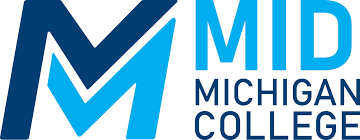
Mid Michigan Community College offers an Automotive & Diesel Service Program and Pathways that has a Master Accreditation, the highest level of achievement, granted by the National Automotive Technician Education Foundation. Students will immerse themselves in real vehicles and vehicle systems in a dealership-style learning format, while students pursuing an associate degree can intern at local businesses together with certified auto mechanics and technicians. Students complete 67.5 credits for program completion and are required to complete core courses such as Engine Fundamentals & Overhaul; Engine Performance I and II; Steering and Suspension Systems; Basic Automotive Electricity; and Introduction to Information Systems.
- Official Program Name: Automotive and Diesel Service
- Program Level: Associate
- Learning Format: On-Campus
- Financial Aid: Scholarships, Grants, Loans, Student Employment, Tuition Benefits, and Discounts

Bay College
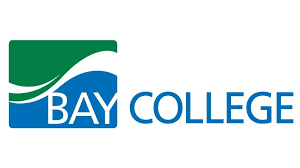
Bay College has an Associate of Applied Science in Automotive Technology program designed to deliver a combination of practical and theoretical skills and expertise to allow graduates to move quickly in their selected occupational field. Students learn to utilize automotive operating principles and to examine malfunctions in automotive systems. The program requires 60 credits for completion. It offers the opportunity for learners to prepare themselves for technician certification examinations, which are mandated by law with state regulations.
- Official Program Name: Automotive Technology
- Program Level: Associate
- Learning Format: On-Campus
- Financial Aid: Scholarships, Grants, Loans, Student Employment, Tuition Benefits, and Discounts
If you’d like, learn about Auto Repair through an online option. Check this out: Online Schools for Auto Repair Programs

The Best Dental Hygiene Trade Schools in Michigan – Campus Only

In Section 333 of the Michigan Public Health Code, licensed dental hygienists may only render services if they are managed by a licensed dentist. As a concrete example, a dental hygienist may offer services to underserved populations through programs or initiatives facilitated by government or non-profit agencies without the supervision of a dentist for as long as the hygienist has access to a dentist whenever issues arise. Dental Hygiene in Michigan is a profession that is flexible enough to meet all kinds of lifestyles and has a promising future.
The cost of a student’s dental hygiene program and length of time they spend in an academic institution in Michigan will vary upon whether they are pursuing an associate degree, a bachelor’s degree, or a master’s degree. An associate degree program generally takes between 20 and 30 months to obtain and typically costs between $3,490-$38,770.
Since dental hygienists must work under the supervision of a licensed dentist, it’s no surprise that more than 9,000 hygienists in Michigan work in dentists’ offices. They provide preventative dentistry procedures while dentists perform restorative services. In other offices, hygienists provide simple cosmetic dentistry procedures, such as removing stains from teeth. Under Michigan’s scope of practice laws, these professionals provide direct access services to under-served populations for as long as they can communicate directly with a dentist if a need arises.
The average dental hygienist wage in Michigan is $64,130 per year. Since hygienists generally work in dentists’ practices, benefits packages can differ significantly. The majority of these hygienists work 20 hours or less a week, and part-time workers are usually not eligible for benefits.
The demand for dental hygiene services in Michigan is projected to grow by nearly 20% by 2026. Michigan is one of the states that is affected by a shortage of dentists, and preventative care services such as those offered by dental hygienists may lessen the demand for the restorative services that dentists provide. Moreover, the state recently passed legislation permitting a new class of dentistry providers, namely dental therapists whose scope of work includes replacing crowns and providing fillings. This is a sector that Michigan hygienists seeking professional advancement may want to explore.
Oakland Community College
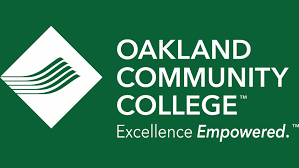
Oakland Community College’s Dental Hygiene program prepares eligible individuals through community experiences, clinical and theory to assume the accountability of providing competent patient care and safety in the prevention of oral disease. Students must have 84.5-85.5 credits for completion of the program. Dental Hygiene classes involving classroom and clinical experience are delivered only at the Highland Lake location. External rotation is needed at an external site visit during the 2nd year of the program. Sample courses include General and Oral Pathology; Dental Health Education; Clinical Dental Hygiene I-IV; Dental Law; and Dental Public Health.
- Official Program Name: Dental Hygiene (DHY.APP)
- Program Level: Associate
- Learning Format: On-Campus
- Financial Aid: Scholarships, Grants, Loans, Student Employment, Tuition Benefits, and Discounts

Wayne County Community College District
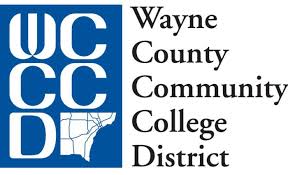
Wayne County Community College has an Associate of Science in Dental Hygiene that helps students learn specialized clinical skills offering direct patient care and may be responsible for community distribution of related information in the prevention of oral diseases. It is designed to shape competent future oral health educators and professionals. Students take core dental hygiene courses, including Dental Biomaterials, Fundamentals of Dental Hygiene; Advanced Periodontology; Dental Radiology Theory; Clinical Techniques; and Medical and Dental Emergencies. The associate program requires 83 credits, while the certificate program requires 22 credits for graduation. Graduates can sit for the National Dental Hygiene and Northeast Regional Board Examinations.
- Official Program Name: Dental Hygiene
- Program Level: Associate
- Learning Format: On-Campus
- Financial Aid: Scholarships, Grants, Loans, Student Employment, Tuition Benefits, and Discounts

Kalamazoo Valley Community College

Kalamazoo Valley Community College’s Associate of Applied Science in Dental Hygiene prepares students to become qualified dental hygiene professionals. The fully-accredited program is an entry-level program that prepares students to take licensure examinations to become licensed dental hygienists. It has earned its accreditation status from the Commission on Dental Association. Successful completion of the dental hygiene program qualifies graduates to take the National Board Exam in Dental Hygiene and the Regional or State Licensing Examinations.
- Official Program Name: Dental Hygiene
- Program Level: Associate
- Learning Format: On-Campus
- Financial Aid: Scholarships, Grants, Loans, Student Employment, Tuition Benefits, and Discounts

Kellogg Community College
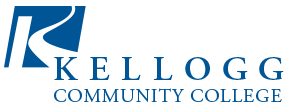
Kellogg Community College has a Dental Hygiene program that provides training and education through hands-on and extensive classroom settings. The program consists of a five-semester sequence of courses recommended for full-time students seeking a dental hygiene degree program. KCC’s dental hygiene program provides learning and valuable expertise and training through the on-campus Dental Hygiene Clinic, where students develop their skills and see cases that prepare them to maximize their career opportunities. Sample courses include Pre-Clinical Dental Hygiene; Dental Hygiene Clinic 1-4; Medical Emergencies in Dental Practice; Oral Pathology; Periodontics; Pain Control; and Oral Anatomy.
- Official Program Name: Dental Hygiene
- Program Level: Associate
- Learning Format: On-Campus
- Financial Aid: Scholarships, Grants, Loans, Student Employment, Tuition Benefits, and Discounts
For online options, see: 100 Percent Online Dental Hygienists Degree Programs

The Best Medical Billing and Coding Trade Schools in Michigan – Campus and Online

According to the Bureau of Labor Statistics, employment in Michigan is on the rise. The unemployment rate has reduced from 5% to 3.9%. The state has increasingly shown employment stability in the fields of education and health services, such as medical billing and coding. Michigan is a favorable state for prospective medical billers and coders seeking to begin a career.
The BLS reports that there are over 5,000 medical billing and coding jobs in Michigan. The average yearly income for medical billers and coders in Michigan, at $38,270, indicating slightly higher than the national median wage.
Many medical billing and coding employers in Michigan require medical billers and coders to be certified. To earn certification, a medical billing and coding professional must pass the American Academy of Professional Coders (AAPC) medical coding examination. On-campus, distance learning, and hybrid medical billing and coding programs will integrate courses that prepare students for the test. The majority of these programs will incorporate the exam as part of their curriculum, saving learners from finding a location, and taking the time to sit for the exam upon completion.
Washtenaw Community College

Washtenaw Community College offers a Certificate in Medical Billing and Coding program that develops students’ comprehensive skills in managing, classifying, identifying, coding, analyzing, and reporting medical data for healthcare facilities and physician’s offices. Moreover, learners learn how to process claims and code for reimbursements for numerous healthcare environments and learn about regulations, compliance issues, and pertinent laws related to healthcare information management and privacy. Students must have 32 credits for completion of the program. Sample courses include Medical Computer Skills and Electronic Health Records; Medical Terminology; Medical Insurance and Reimbursement; Introductory Procedural Coding; and Anatomy and Physiology – Normal Structure and Function.
- Official Program Name: Medical Billing and Coding
- Program Level: Certificate
- Learning Format: On-Campus
- Financial Aid: Scholarships, Grants, Loans, Student Employment, Tuition Benefits, and Discounts

Ross Medical Education Center

Ross Medical Education Center provides medical billing and coding-related education and training in its Medical Insurance Billing and Office Administration. Learners earn direction from experienced professors on disease processes, the associated pharmacotherapy and medical terminology, and physiology and basic human anatomy. They are also taught on administrative skills, including proper filing and processing of medical insurance claims, medical filing, and charting, financial record-keeping, and other related medical office processes. They complete courses, including Biomedical Science, Medical Law, and Ethics, Fundamentals of Assisting, Medical Office Management, and Basic Office First Aid. At the end of all classroom training of the program, each student will have to complete an externship program as part of the completion requirements.
- Official Program Name: Medical Insurance Billing and Office Administration
- Program Level: Certificate
- Learning Format: On-Campus
- Financial Aid: Scholarships, Grants, Loans, Student Employment, Tuition Benefits, and Discounts

Jackson College
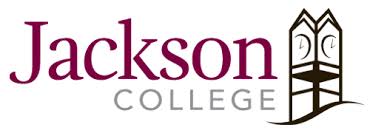
Jackson College’s Medical Insurance Coder/Biller certificate program prepares students to work in hospital facilities, medical offices, clinics, emergency centers, or surgical centers. Its emphasis is aimed at concepts and theories on diagnostic and procedure coding, medical terminologies, medical office, and hospital billing, use of electronic medical management systems, disease conditions, and medical financial management. It is a competency-based degree program that enables for different program completion specializations that gain credit for work experience or waiver by examination, tailored to meet the specific needs of beginners and experienced coders or billers for several industry credentials. Core course requirements include Principles of Medical Coding and Billing; Medical Law and Ethics; Electronic Health Records Specialist; Advanced Coding; and Advanced Medical Billing.
- Official Program Name: Medical Insurance Coder/Biller
- Program Level: Certificate
- Learning Format: On-Campus
- Financial Aid: Scholarships, Grants, Loans, Student Employment, Tuition Benefits, and Discounts
Additional online programs offered in other states: Accredited Online Schools Offering Outstanding Medical Billing and Coding Programs

The Best Cosmetology Trade School in Michigan – Campus Only

Cosmetology is a broad industry and can prepare students to work as a sales representative for major brands, makeup artists, skin specialists, or hairstylists. In Michigan, students will find certificate and diploma programs highly specialized to prepare them for work in the industry as well as degree programs, that include general education requirements together with cosmetology training to complete their degree.
Students find cosmetology certificate programs spanning in 1-2 years and associate degree programs running 4-5 semesters in several two-year and four-year public schools. These classes include the practical experience to help students gain Michigan licensing. Some programs provide specializations in areas such as cosmetology management, cosmetology instructor, or stylist, and some are made open to high school students.
Mott Community College
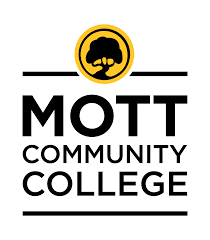
Mott Community College runs an Associate of Applied Science in Hair Salon Management program that is designed to deliver the prospective hair care expert with the management and business skills required to help establish a rewarding small business. Students who wish to register for this program must have a current State of Michigan Cosmetology or Barber License and a high school diploma or equivalent. Current holders of a Michigan cosmetology or barber’s license are awarded 22 credits towards this program. Students must earn 44 credits for graduation and complete Small Business Management, Business Maths, Art Appreciation, Principles of Marketing, and Business Law I courses.
- Official Program Name: Hair Salon Management
- Program Level: Associate
- Learning Format: On-Campus
- Financial Aid: Scholarships, Grants, Loans, Student Employment, Tuition Benefits, and Discounts

The Best Information Technology Trade Schools in Michigan – Campus and Online

Forbes Magazine printed an article in 2018, describing the reasons Michigan should be recognized as “The Silicon Valley of Mobile Tech.” The article explains that Michigan has the highest number of connected and automated vehicle projects. This, blended with an industry already well-structured in automation, may offer whole new opportunities to places like Grand Rapids, Motor City, and Ypsilanti. It is considered good news for those who are considering one of the Information Technology or Computer Science institutions in Michigan.
In 2018, Michigan ranked 9th in net technology employment. Through these initiatives, state leaders seek to drive more students to pursue careers in the IT industries:
- Nurturing Tech Start-Ups: Michigan’s TechTown Initiative was established in 2000 in Detroit, designed to accelerate start-up companies or businesses. TechTown provides resources and support to help individuals move their ideas forward, but also a learner accelerator program that is aimed at college students and graduates who want to establish their tech start-ups.
- Marshall Plan for Talent: The governor developed this initiative as a collaboration between employers, educators, and other professionals to facilitate change in how the state grows. A part of this plan includes filling the gaps in the workforce, specifically in the IT and computer science industries.
- PlanetM: The initiative brings together academics, government, workforce, and industry to align the state as a mobility hub. As a concrete example, Switch is adding a $5 billion data center in Grand Rapids that should assist in handling the data needs of big companies such as Google, eBay, and Amazon.
Oakland Community College
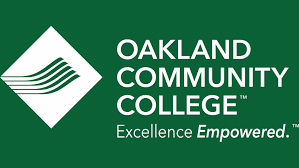
Oakland Community College’s Computer Information Systems programs are designed for learners who require general education courses with a solid foundational background in the fundamental computer skills that are generally used to create, analyze business requirements, develop and test software application as well as support and protect the system of technological resources. There are four major concentrations available for the associate degree program namely Business Systems Analysis, Software Engineering, Cybersecurity, and Information Technology Support. Sample courses include Personal Computer Database Concepts, Web Graphic Concepts, Introduction to Database Systems, Voice and Data Cabling, and Introduction to Programming (Java).
- Official Program Name: Computer Information Systems
- Program Level: Certificate, Associate
- Learning Format: On-Campus
- Financial Aid: Scholarships, Grants, Loans, Student Employment, Tuition Benefits, and Discounts

Washtenaw Community College

Washtenaw Community College has an Associate in Science-Information Systems program that prepares students to finish a bachelor’s degree program in Business Administration with a major in Computer Information Systems. Students are equipped with the knowledge and expertise in maintaining and creating information systems for organizations, develop strategies for effective utilization of enterprise information resources, and manage information systems projects. The program can be completed on-campus or entirely online, depending on the student’s needs. Sample courses include Data Structures with C++, Professional Team Programming, Object Features of C++, Web Programming Using Apache, MySQL, and PHP; and Linux/Unix I: Fundamentals.
- Official Program Name: Information Systems: Programming in C++ (ASISPC)
- Program Level: Associate
- Learning Format: On-Campus or Online
- Financial Aid: Scholarships, Grants, Loans, Student Employment, Tuition Benefits, and Discounts

Mid Michigan Community College
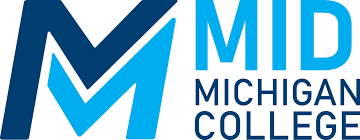
Mid Michigan Community College offers an associate program in computer information systems that helps students learn on real equipment in Mid Michigan’s hands-on laboratory. Students practice skills and expertise on CISCO simulators, switches and routers. The CIS Program and Pathways equip students with the essential skills and knowledge they need to take certification examinations in specific industry-recognized certifications such as LPI Linux Essentials, CompTIA Network+, CompTIA IT Fundamentals, Cisco Certified Entry Network Technician, Cisco Cybersecurity Operations, and Cisco Cybersecurity Fundamentals.
- Official Program Name: Computer Information Systems
- Program Level: Associate
- Learning Format: On-Campus
- Financial Aid: Scholarships, Grants, Loans, Student Employment, Tuition Benefits, and Discounts

Macomb Community College
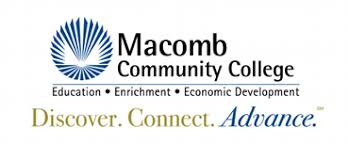
Macomb Community College’s IT Professional program offers students with a solid background in Windows-based applications networking, web design, and programming. Students will learn Information Technology-related concepts and methodologies for managing information resources, internetworking protocols, JavaScript for interactivity, Structured Query Language (SQL), HTML for Web Page Development, Extensible Markup Language, and many other IT fundamentals. Sample courses include Basic Web Design with Cascading Style Sheets; Database Design and Implementation with SQL and XML; Introduction to Information Systems Security; C++ Programming; Introduction to Program Design and Development; and Principles of Networking.
- Official Program Name: IT-Professional
- Program Level: Certificate, Associate
- Learning Format: On-Campus
- Financial Aid: Scholarships, Grants, Loans, Student Employment, Tuition Benefits, and Discounts
Is earning a graduate degree in your future? Look at this: Top 15 Online Master’s in Computer Science or our choices for the 8 Best Online Schools for Doctor of Information Technology

The Best Photography Trade Schools in Michigan – Campus Only

Students in Michigan can take photography courses at one of several public and private colleges and universities. Courses available can teach learners about traditional, film-based formats and digital formats. Undergraduate certificate, associate, and bachelor’s degree programs are available. An associate degree in photography is typically offered as an Associate of Arts in Photography or an Associate of Science in Photographic Technology. These degree programs are delivered at community colleges, four-year universities, and art schools. It prepares students for entry-level positions as photographers and typically takes two years to finish or the equivalent of 90 credit hours. The set of coursework is technical, and learners in an associate degree program learn several types of photography and the techniques used by professionals.
Oakland Community College
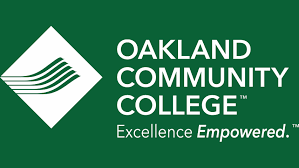
Oakland Community College has an Associate of Applied Science in Photographic Technology that provides professional and technical experience in color, digital, and black & white photography. The program requires 62-66 credits for completion. Sample courses include Introduction to Media Technology, Graphic Design, Fundamentals of Digital Video; Introduction to Film; and Mass Media and Society.
- Official Program Name: Photographic Technology
- Program Level: Certificate, Associate
- Learning Format: On-Campus
- Financial Aid: Scholarships, Grants, Loans, Student Employment, Tuition Benefits, and Discounts

Washtenaw Community College

Washtenaw Community College offers an Associate in Applied Science that delivers a comprehensive foundation in film-based and digital photography. Students can customize their program to their particular interest in the photographic sectors through a combination of required foundational courses and specialized elective requirements. They work with different varieties of advanced photographic equipment including traditional darkrooms, view cameras, digital cameras as well as different types of studio and location lighting systems and processes. A total of 62 credits is required for completion for the program. Students complete core photography courses. These courses include Digital Photo Imaging, History of Photography, Film and Darkroom Photography, Black and White Digital Imaging, and Introduction to the Studio.
- Official Program Name: Photographic Technology (APPHOT)
- Program Level: Associate
- Learning Format: On-Campus
- Financial Aid: Scholarships, Grants, Loans, Student Employment, Tuition Benefits, and Discounts

Macomb Community College
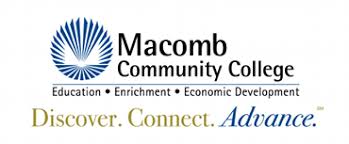
Macomb Community College’s Certificate in Photographic Arts program provides advancement in students’ skills as a photographer and help them prepare for career opportunities in full-time or freelance photography. Students will learn how to make the most out of their digital camera by fully comprehending all of its functionalities, controls, and menus.
They will explore composition techniques for landscapes and cityscapes as well as lightning and composition. The photographic arts courses can either be taken individually or as part of a certification program. Sample courses include Travel Photography, Creative Lightning for Photography, Digital Black and White; Digital Fundamentals; and Photoshop for Photographers 1 and 2.
- Official Program Name: Photographic Arts
- Program Level: Certificate
- Learning Format: On-Campus
- Financial Aid: Scholarships, Grants, Loans, Student Employment, Tuition Benefits, and Discounts

Kellogg Community College
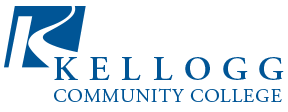
Kellogg Community College has an Associate in Applied Science: Photography and Multimedia that is designed by employers and industry experts and professionals to develop students who thrive in fast-paced work settings and to prepare them to utilize state-of-the-art technology and equipment with artistic expression. The program blends traditional and digital media technologies by motivating aesthetic awareness of film animation, photography, visual arts, video capture and editing, multimedia, and web design, considering all aspects as a form of art and professional medium of communication. Students complete core required courses such as Digital Color Photography, Studio Photography; Design for the Web; Introduction to Photography; and Intermediate Photography.
- Official Program Name: Photography and Multimedia
- Program Level: Associate
- Learning Format: On-Campus
- Financial Aid: Scholarships, Grants, Loans, Student Employment, Tuition Benefits, and Discounts

Lansing Community College
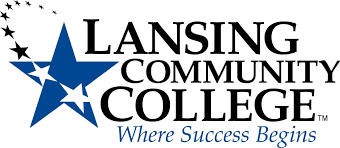
Lansing Community College offers an Associate of Applied Science in Photographic Imaging that can be completed either on-campus, online, or hybrid learning format. The school will provide training and education related to two major categories of photography, namely visual and technical. Students must earn 62-63 credits for completion of the program. Sample courses include Advanced Photographic Imaging, Digital Color Management/Print, Commercial Illustration Photo, Digital Image for Photographers, and Lighting Concepts and Application.
- Official Program Name: Photographic Imaging
- Program Level: Certificate, Associate
- Learning Format: On-Campus
- Financial Aid: Scholarships, Grants, Loans, Student Employment, Tuition Benefits, and Discounts
Online programs in Photography: Top Online Trade Schools for Photography Degree Programs